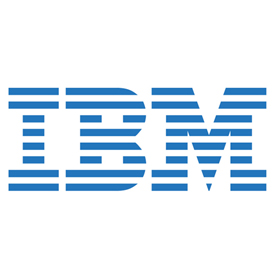
Bill Gates and Mark Zuckerberg aren’t the only Silicon Valley heavyweights fighting Ebola: IBM is using its tech know-how to help curb the spread of the disease in West Africa.
The company is teaming up with Sierra Leone’s Open Government Initiative, Cambridge University’s Africa’s Voices project, telco firm Airtel, and Kenya’s Echo Mobile for various efforts aimed at fighting the deadly disease.
Internet connections are not easy to come by in many areas of the affected region, hampering citizen reporting efforts. So IBM and the Open Government Initiative developed a system that lets people report Ebola-related issues and concerns via SMS or voice calls.
“For us to tackle Ebola, it is crucial to maintain an open dialogue between the government and the people of Sierra Leone,” Khadija Sesay, director the Open Government Initiative, said in a statement. “IBM has enhanced our work on citizen engagement through the use of innovative technology, and opened up an effective communication channel with the general public so that we can learn from their input and create actionable policies in the fight against Ebola.”
IBM can then take that info and – via the power of supercomputing and cloud-based analytics – identify emerging issues before they get out of hand. “As the SMS and voice data are location specific, IBM is able to create opinion-based heat-maps which correlate public sentiment to location information,” IBM said.
More importantly, the technology has already highlighted regions with growing numbers of suspected Ebola cases, so officials know where supplies and other assistance is most needed.
“We are uniquely positioned to use innovation to help tackle some of the continent’s biggest challenges,” IBM Research chief scientist Dr. Uyi Stewart said of the company’s first research lab in Africa. “We saw the need to quickly develop a system to enable communities directly affected by Ebola to provide valuable insight about how to fight it. Using mobile technology, we have given them a voice and a channel to communicate their experiences directly to the government.”
Nigeria, meanwhile, has recently been declared free of the disease, and it now working with IBM to help support the country’s preparedness for future outbreaks. With a technology donation from IBM, the Lagos State Government has opened an Ebola Operations Center, which coordinates disease containment efforts on behalf of the Nigerian government and other organizations.
But this disease is not contained in Africa, and neither are the people fighting it. IBM has volunteers around the globe identifying, cataloguing, and classifying all open data sources related to the outbreak. The goal, according to IBM, is to create a cloud-based Ebola Open Data Repository, which provides governments, aid agencies, and researchers with free and open access to data related to the sickness.
“Data can be a powerful resource for managing and mitigating epidemics,” Jeanne Holm, evangelist for Data.gov, said in a statement. “Governments and other organizations have valuable open data that could help in relief efforts—about roads, airports, schools, medical facilities, and populations.
“Such information can help to drive data-driven decisions during times of uncertainty,” Holm continued. “IBM is playing a key role in this initiative by helping to identify and gather more open data sources that might inform decisions around Ebola.”
Learn more about IBM’s Africa research center in the video below.
Meanwhile, another Microsoft co-founder has pledged a nice chunk of change to help fight the outbreak. Paul Allen has set up tackleebola.com and committed to donate $100 million to the effort.

